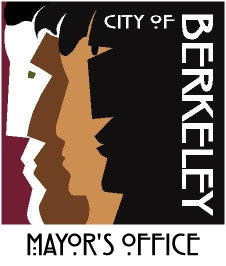Berkeley City Council Approves $33-Million Development Agreement with City's Largest Private Employer
BERKELEY – Last night, the Berkeley City Council unanimously approved a 30-year, $33.1 million dollar development agreement with Bayer. The agreement renews an expiring agreement and significantly increases community benefits provided by the city’s largest private employer.
“This is the culmination of a nearly two-year long process, scores of public meetings and community input, and a robust evaluation of our largest employer’s plans for future growth,” said Berkeley Mayor Jesse Arreguín. “This agreement will bring more jobs to Berkeley while dramatically increasing Bayer’s investment in local education, the West Berkeley community, affordable housing, childcare, and even the arts.”
Biosciences is one of Berkeley’s most stable and growing business sectors. In the 30 years since the first development agreement was reached, the San Francisco Bay Area has become a global hub for life sciences. Communities across the U.S. and around the globe compete to attract life sciences investment. The extension of the Development Agreement ensures that Berkeley remains competitive in attracting Bayer global infrastructure investments and the associated broad array of job opportunities.
The extended Development Agreement significantly increases local investment from Bayer. According to the Bay Area Council Economic Institute, Berkeley could see a sizable increase in economic activity stemming from Bayer operations. Today, the company generates about $15 million in economic activity in Berkeley. By 2052, this number is projected to increase 97% to $29 million under the development agreement. Over the course of 30 years, Bayer jobs in Berkeley are expected to roughly double from current levels to 2,000. The company’s economic impact extends throughout the Bay Area, as for every Bayer employee, on average, another job is created in the region.
When the Development Agreement was established in 1992, it was the first of its kind in Berkeley and provided a model for other cities. It created a public-private partnership to serve patients around the world and help the local community thrive.
“West Berkeley, where Bayer is located, is one of our city’s most socially and economically disadvantaged neighborhoods,” said District 2 Councilmember Terry Taplin. “Neighbors engaged in the process. They value Bayer as a member of the community and asked for investment. The renewed Development Agreement would provide important resources for us to address economic, social and environmental challenges so that we can strengthen this neighborhood over the next 30 years.”
The Development Agreement provides strict guidelines for how Bayer is to develop its facilities in a way that protects neighbors and the environment, maintains view corridors, and mitigates potential traffic and parking impacts. It also sets the stage for growth of an anchor manufacturer and biotech enterprise in West Berkeley that employs a diverse workforce with job opportunities from kids in high school to those with PhDs.
